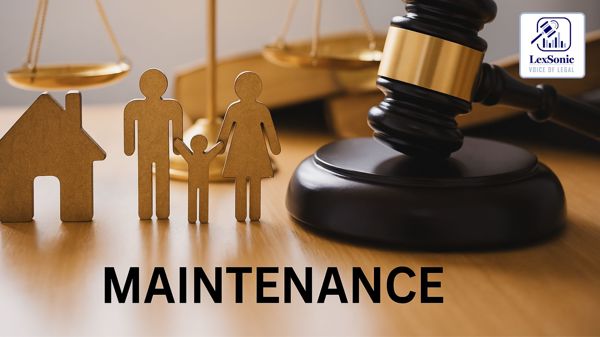Supreme Court Restores Maintenance Enforcement Case, Faults High Court for Passing Ex-Parte Order.
16 September 2025
Maintenance >> Family Law
The Supreme Court has reserved an ex-parte order passed by the Allahabad High Court that had cancelled enforcement proceedings for recovery of arrears of maintenance. The top court ruled that as the order was passed without affording an opportunity of hearing to the beneficiary of the award of maintenance, it was liable to be set aside and considered afresh by the High Court.
Case Background:
The appellant, Dolly Aggarwal, had obtained an order of maintenance under Section 125 of the Code of Criminal Procedure, 1973 (CrPC). As the arrears were incurred, she petitioned for the enforcement of the order. The warrant of recovery and arrest under Section 128 CrPC was issued on 21 May 2025 to recover arrears worth Rs. 12.3 lakh.

Aggrieved, the husband (Respondent No. 2) made an application under Section 528 of the Bharatiya Nagarik Suraksha Sanhita, 2023 (BNSS), against the recovery order.
On 11 July 2025, the High Court granted his request, set aside recovery proceedings, and instructed the appellant to instead seek enforcement of maintenance under the Code of Civil Procedure (CPC) mechanism. The High Court did so in reliance on the Supreme Court's decision in Rajnesh v. Neha (2021) 2 SCC 324, which had considered enforcement of maintenance orders.
Grievance Before Supreme Court:
The appellant went to the Supreme Court arguing that:
- The High Court order was ex-parte, made without granting her a hearing.
- The High Court misunderstood Rajnesh v. Neha, which does not exclude enforcement of maintenance through the remedies available under the CrPC, specifically Section 125(3), which allows for issuance of warrants for recovery of dues.
It was argued that there was already a pending revision petition questioning the grant of maintenance itself, but until the same was disposed of, the appellant had a right to approach enforcement as per the current law.
Findings of Supreme Court:
The Bench of Justice Manoj Misra and Justice Ujjal Bhuyan held that the High Court was in error in disposing of the case without hearing the appellant, in whose favour the order for maintenance had been made. The Supreme Court stated that natural justice principles required the person who is to benefit from the order to be heard before their rights are restricted.
On this slender but vital terrain, the Court reserved the High Court's order of 11 July 2025.
Directions Issued:
The top court revived the husband's application under Section 528 BNSS before the Allahabad High Court afresh. The Court ordered that:
- The case be placed before the concerned Bench of the High Court in the week of 6 October 2025.
- The High Court will hear the application fresh after affording hearing opportunity to both parties.
- All merits legal contentions are reserved for the parties to pursue before the High Court.
- The Supreme Court thus granted the appeal and struck down all pending applications.
Significance:
This ruling underscores that although maintenance orders may be enforced both as decrees in civil law as well as by warrants under criminal procedure, any alteration, suspension, or cancellation of such enforcement shall have to follow canons of natural justice. The verdict enforces that beneficiaries of maintenance cannot be denied their statutory remedies without a hearing.
Section 125., Code of Criminal Procedure - 1973
Section 128., Code of Criminal Procedure - 1973
Code of Criminal Procedure, 1973
